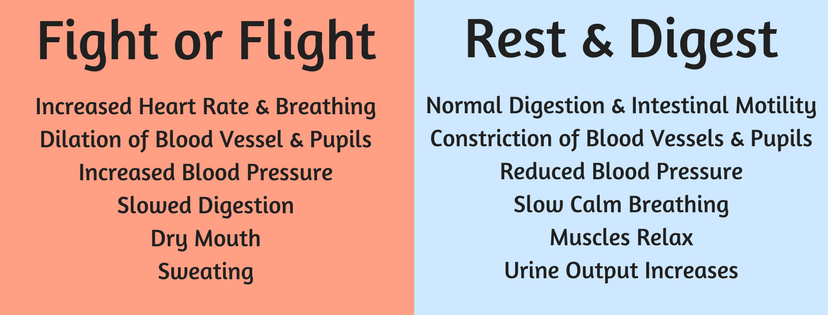Mindy Duncan | Clinical Naturopath
Stress is something we’ve become all too familiar with as it now appears to be a permanent phenomenon of modern life. It’s very normal to experience stress. The human body was built to cope brilliantly with a certain amount of daily stress. After all, it’s how we build resilience & indicate healthy nervous system activity. However, it is important to distinguish the difference between normal acute stress & chronic stress.
Acute Vs. Chronic Stress
The difference between acute & chronic stress is a very important comparison to discuss. Even though the word “stress” gets overshadowed with negativity it is actually a very healthy & normal part of daily life, it’s when normal stress becomes hyper-regular & consistent that it becomes concerning, depleting & unhealthy.
Acute
Acute stress is more or less episodic. It’s the stress we feel when we deal with a specific situation or event. For example, if we need to speak in public, or maybe running late or almost get into a car accident. It manifests itself with symptoms such as increased heart rate, nervousness, shaking hands & increased perspiration. Acute stress is a very normal part of every life, an indicator of healthy nervous system activity & in many ways helps our stress system build resilience & work more efficiently. It can also be thrilling & even exciting at times, it can help motivate, drive us & give us that boost of adrenaline we need to achieve our goals.
Chronic
Chronic long-term stress on the other hand, is continuous unrelenting stress that overtime depletes our health. It’s that grinding type of stress which wears people down. Problems arise when we are continuously exposed to the same or many different stressors for an extended period of time & also fail to implement sufficient coping and stress neutralizing methods (i.e. self-care, light exercise, meditation).
Chronic stress is relentless & highly consuming, in fact, in many cases people get so used to it they tend to forgot that it’s occurring altogether. The real danger is that chronic stress is being implicated as a major contributing factor in the onset of number of chronic illness including heart disease, type II diabetes, depression & premature brain degeneration, and what’s even more concerning is that this risk increases significantly for those with great susceptibility including genetic/family history. I.e if you have a strong genetic history of heart disease & lead an extremely stress life, perhaps it’s time you implement some stress reduction strategies.
What happens during the stress response?
To understand the impact stress has on the body we first must understand the basic functions of the nervous system. To grossly oversimplify things our nervous system functions in 2 different modes (see below):
- “fight-or-flight”, governed by the sympathetic nervous system (SNS)
- “rest-and-digest”, governed by the para-sympathetic nervous system (PNS)
What happens within our body in reaction to a stressful event is incredibly elegant & complex. This feedback mechanism, as with all feedback mechanisms in the body, is there to protect us, to help us survive. The feedback mechanism in question is the Hypothalamic-Pituitary-Adrenal (HPA) Axis & boy does it get a workout!
Increased cortisol production is the end product of the HPA axis. It’s purpose is to get us away from the “perceived” dangerous situation & toward safety by engaging the “fight-or-flight” response. Which probably isn’t the most appropriate or necessary response to modern day stressors. Unfortunately, our body isn’t yet able to distinguish one threat from another and will always respond in the same manner.
What constitutes a stressful event?
What actually constitutes a stressful event will be different for all us. This comes down to our life experience, what stress memories our brain carriers & how we cope with stress in general. Remember our body is only trying to help us, if we were once in a really stressful or traumatic situation, our amygdala remembers this & files it away for later. When we are in the same situation, it recognises it & alerts us of the danger.
There are also a number of common situations which constitute a stressful event for all of us, these include:
- Sleep deprivation
- Excessive exercise
- Mental stress
- Emotional stress
- Caffeine consumption (or excessive consumption)
- Hypoglycaemia (low blood sugar)
- Consumption of refined foods including sugar, trans-fats, processed foods, preservatives, junk food, white flour, soft drink, etc
And to top this off, we all basically live grossly overstimulating lives & give ourselves very little time for quiet, relaxation or self restoration. We need time away from the madness to process everything, time to let our body just be.
What are the consequences of chronic stress?
Our bodies are designed to withstand & cope with many stressful events over our lifetime, our bodies are incredibly strong & resilience but we certainly aren’t invincible. No matter how much manifesting we do! We are designed to cope well with stressful incidences rather than continuous & ongoing stressful incidences. Many of us, unfortunately, don’t ever get a break from the fight-or-flight response. Overtime this chronic stress may lead to the following:
- Disrupted circadian rhythm – stress interferes with the normal circadian release of cortisol through-out the day meaning difficulty getting to & staying asleep.
- Reduced immune function leading to increased rate of illness & infections.
- Disrupted microbiome – stress has been shown to negatively impacted numbers of beneficial bacteria including Bifidobacterium & Lactobacilli in the gut.
- Digestive issues such as IBS, indigestion, bloating, constipation & diarrhoea.
- Menstruation is interrupted resulting in lack of period (& ovulation), irregular periods, heavy periods, painful periods, etc.
- Depletion of essential nutrients including magnesium, B vitamins & antioxidants.
- Adrenal fatigue – the adrenals can only pump out so much cortisol before the tank is empty.
If you feel stress is getting the better of you our team is here to help. To book a consultation please click here or visit us in store to have a quick chat & discuss the best plan of action of you.


